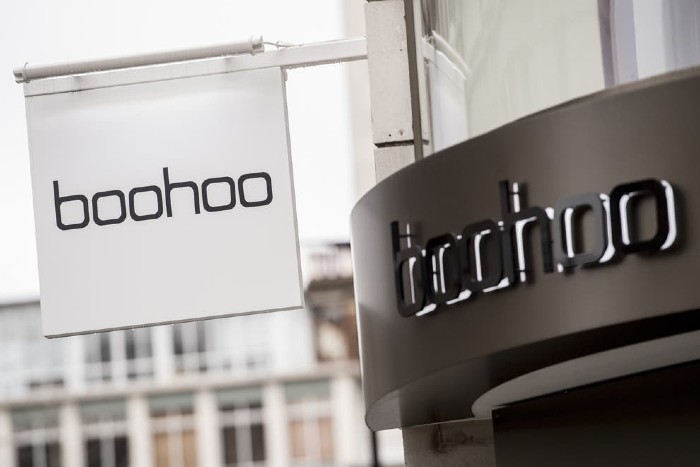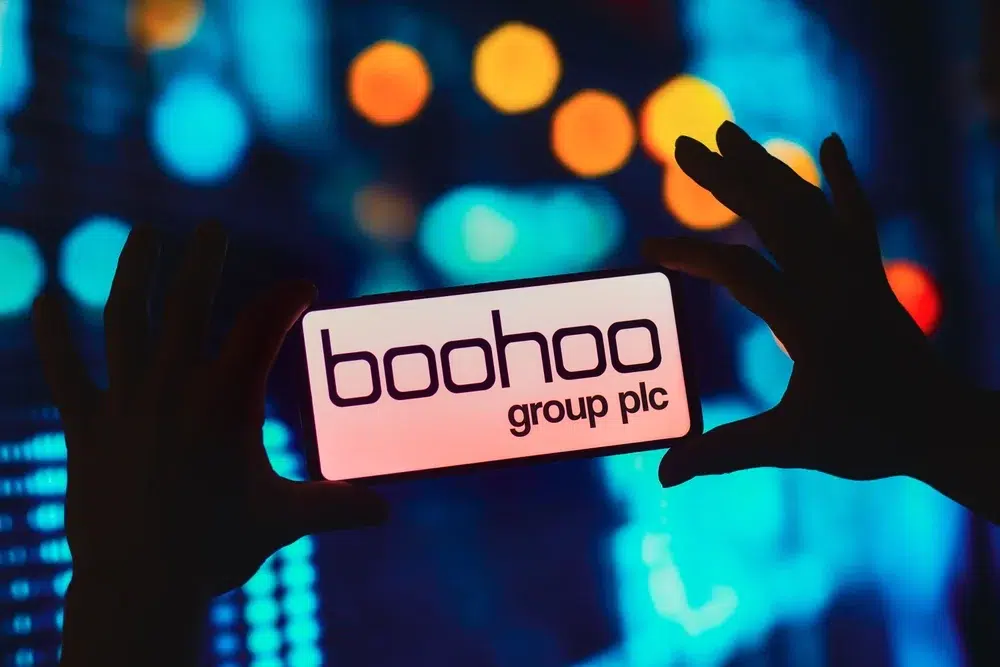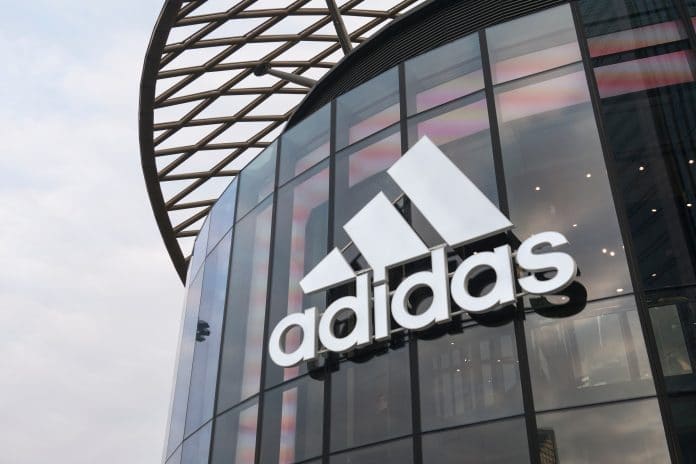It’s no secret that the fast fashion retail sector has garnered a bad reputation over the past few years over sustainability practices, especially in the wake of increased sustainability awareness among consumers – particularly during the Covid-19 pandemic.
Boohoo Group has certainly not been immune to this. After it was embroiled in a modern slavery controversy last year, the online retail giant is now doing its best to distance itself from the notion of unethical practices. Its latest initiative is a proposal to link senior executive bonuses to its environmental, social and governance (ESG) improvements.
This came about after Boohoo Group – which owns PrettyLittleThing, Nasty Gal, MissPap, Karen Millen, Coast, Oasis, Warehouse, Boohoo itself and now Debenhams, Dorothy Perkins and Burton – was found to have a Leicester supplier that operated a factory during a localised lockdown without additional hygiene or social distancing measures in place. The factory in question also allegedly paid garment workers £3.50 an hour, despite the minimum wage in the UK for those aged 25 and over being £8.72.

On Monday, Boohoo Group chairman Mahmud Kamani told the Environmental Audit Committee (EAC) about the firm’s plan to link bonuses to sustainability practices.
The EAC made the recommendation in a letter to the online retail group following an evidence session in December, attended virtually by Kamani and executives. The committee said aligning executive remuneration to ESG improvements would demonstrate a “genuine commitment to environmental and social responsibility”.
“Boohoo’s response to our committee’s letter sends promising signals that we are reaching a turning point in fast fashion’s awareness of its environmental and social responsibilities,” EAC chairman Philip Dunne said.
“Bonuses shouldn’t just be linked to breakneck growth. Boohoo needs to demonstrate that it is delivering verifiable improvements in workers’ rights and the climate impact of its products.
“News last summer emanating from Leicester’s garment industry appalled us all, with allegations of modern slavery in supply chains and a lack of Covid-secure measures in factories.
“This spotlight on Leicester may have encouraged Boohoo to take steps to clean up its supply chain.”

A Boohoo Group spokesperson told Retail Gazette that the board was discussing this matter and has shared Kamani’s bonus proposal with a number of its shareholders, who have given constructive feedback on its plans to date.
“Further details of the approach will be included in the group’s annual report which will be published in May,” the spokesperson said.
GlobalData senior analyst Emily Salter said linking executive bonuses to a retailer’s ESG performance provided a strong incentive to improve in these areas, as it allowed for more “tangible benefit of making changes” beyond growing consumer awareness.
“Since bonuses are normally tied to financial performance, this alternative approach will help to cultivate a different mindset among executives: that a successful retailer is not only one that can generate sales growth and profit, but also one that cares about ESG issues,” Salter told Retail Gazette.
“For the Boohoo Group, this will help prove its commitment to improving its ESG credentials to investors, potentially boosting its share price.”
Salter added that similarly, H&M Group issued a sustainability-linked bond at the start of 2021 that creates an incentive for Swedish fashion giant to meet ESG targets.
“As H&M is a leader in sustainable initiatives, other major retailers may have started to look at introducing similar schemes,” she said, highlighting how many would not want to be seen to be “lagging behind”.
“If the Boohoo Group does link its bonuses to ESG performance, other retailers are likely to follow suit as the group is an important benchmark for other players in the fast fashion market,” Salter added.
“Other retailers may feel pressured to link their bonuses to ESG improvements, but they must ensure that this is done meaningfully, not just to gain positive press coverage as then they are at more risk of been criticised for greenwashing.
“There a number of other ways in which retailers can improve their ethical performance, for instance increasing the transparency of their supply chain, which can prove especially difficult due to outsourcing; reducing their carbon emissions; reducing water usage; and using more sustainable materials in their styles.”
“Other retailers may feel pressured to link their bonuses to ESG improvements”
Nottingham Business School marketing senior lecturer Arooj Rashid argued that ESG improvement was “an excellent opportunity” for retailers to improve their brand image slowly, especially after being “shrugged by the media for poor pay and working conditions among factory workers in the home country”.
“The ESG improvement such as fair pay, hiring diversity, applying health and safety measures, and waste reduction could be the way to survive,” she said.
“For example, many students apply for graduate opportunities at Boohoo and other fashion retailers. If fashion retailers improve their working conditions, people will show more interest as they would have developed trust.”
Chris Field, lead analyst from Retail Connections, said Boohoo Group’s plan to link executive bonuses to sustainability performance was a “clever move”. He explained that it dealt in part with the public’s concerns over the company’s treatment of suppliers following the Leicester controversy last year, and effectively incentivised senior executives to act responsibly.
“The latest move also helps dispel the idea that the board was paying itself too much regardless of ethical performance,” he said.
“Consumers are demanding a more coherent story from Boohoo and this does at least feel like more than simply ticking an ethical box.
“However, this is only part of a journey to sustainability and is not that significant in itself. It will be interesting to see if other brands are prepared to link pay to performance standards other than simply financial.
“What we cannot yet know is whether moves like this are important to Boohoo customers. It matters hugely to the company when it gets singled out in the media, and more and more reports are now emerging that show the consumer wants their brands to act responsibly and sustainably. But as to whether this matters to all demographics remains to be seen.
“Ultimately, being sustainable and being seen to be sustainable add cost to every item and Boohoo risks losing its discount crown to competitors if it can’t keep prices low.”
Meanwhile, Samantha Mansfield, head of strategy at commerce agency LiveArea EMEA, said that if a senior executive values their bonus, they may adjust their decision-making process or weighting in favour of more environmentally-friendly decisions.
“You have to change something if you want to change anything, and changing the way you incentivise people to achieve a desired outcome can be very effective,” she said.
“In the case of the EAC and Boohoo, the desired outcome is an improvement in ESG metrics. This starts with the people making the decisions on what policies, approaches and metrics matter across their business and supply chain.
“The ESG challenges we face cannot be solved by one retailer alone. As we see with many companies adopting a ‘triple bottom line’ approach, for example, we may be able to reach a tipping point where not including ESG metrics as a measure of performance and compensation becomes the outlier.
“Additionally, we may see a domino effect with regard to competition. Sustainability, the environment and social causes all matter to the modern consumer to a far greater degree than in recent history.
“If Boohoo is able to stand alone and point to this compensation structure, it gives them a competitive advantage. If consumers react positively, competitors will need to catch up.
“Retailers can consider extending this scheme through their hierarchy. It is one thing for senior executives to set a policy, but you need the actual ‘boots on the ground’ to honour and execute the policy on a day-to-day basis.
“Looking at bonuses or rewards for ESG-friendly ideas for all employees can also invite innovation across the supply chain.
“Each employee at each level has a unique perspective and providing an incentive to think sustainably can uncover previously unknown opportunities for positive change.”
The events of the last 12 months have undoubtedly accelerated the consumer focus on brand authenticity and the spotlight is on sustainability performance now more than ever.
There has been a rise in the second hand clothing market and an increase in clothing rental options, but arguably this is not enough to bring change. Customers are expecting a visible shift in behaviour from the retailers they shop with.
Inevitably, when there is a personal impact in an executive’s pocket, boardroom leaders are more likely to take notice and start towing the ethical performance line, whether they want to or not.
Click here to sign up to Retail Gazette‘s free daily email newsletter


















